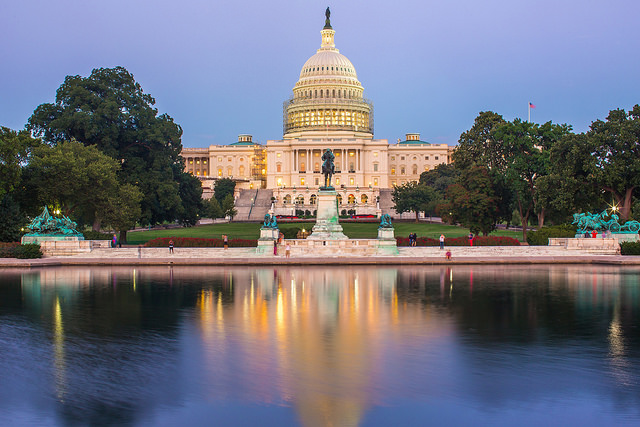
Earlier this week, Ways and Means Republicans released five pieces of legislation that offer taxpayers relief from numerous Obamacare taxes. Specifically, these pieces of legislation would offer relief from Obamacare’s medical device tax, medicine cabinet tax, health insurance tax, employer mandate tax penalty, and Cadillac tax.
This relief would provide relief to millions of HSA and FSA users, medical device manufacturers, the healthcare premiums paid by seniors, small businesses owners and middle class families, small businesses that are hit by the employer mandate, and employers that provide healthcare plans to their employees.
Members of Congress should support these commonsense proposals.
Five year relief from the medical device tax
H.R. 4617, sponsored by Reps. Erik Paulsen (R-MN) and Jackie Walorski (R-IN) would offer five years of relief from Obamacare’s 2.3 percent medical device tax.
If Congress fails to act, the medical device tax will go into effect next year, which could lead to more than 25,000 lost jobs by 2021. Over the next decade, this excise tax is projected to increase taxes by $30 billion.
Medical device makers contribute roughly $150 billion to the U.S. economy. Nationwide, there are over 6,500 medical device companies in America. 80 percent of these have fewer than 50 employees, so the medical device tax disproportionately falls on small businesses.
Two year relief from the medicine cabinet tax on over-the-counter medications
H.R. 4618, sponsored by Rep. Lynn Jenkins (R-KS) would offer two years of relief from the Obamacare Medicine Cabinet tax. This tax 20 million Americans with a Health Savings Account and 30 – 35 million Americans with a Flexible Spending Account.
Under Obamacare’s Medicine Cabinet Tax, Americans are forbidden from using HSA and FSA funds to buy over the counter medicines, such as -cold, cough, and flu medicines, children’s fever relievers, chest rubs, aspirin and baby aspirin, and allergy medicine.
By forcing Americans with FSAs and HSAs to use post-tax dollars to purchase these necessary items, Obamacare raised taxes on these households by $5.6 billion over a ten year period.
2019 delay of the health insurance tax and 2018 delay provided insurer provides rebate to plan holder
H.R. 4620 sponsored by Rep. Kristi Noem (R-S.D.) delays the Obamacare health insurance tax for 2019 and for 2018 provided the provide rebates any costs of the tax onto the plan holder.
In total, the health insurance tax hits 11 million households that purchase through the individual insurance market, and 23 million households covered through their jobs. Next year alone, the tax will total $14.3 billion, and over a decade the tax totals roughly $150 billion in higher taxes.
Half of the tax is paid by those earning less than $50,000 a year and it will increase premiums by $5,000 per family over the next decade according to research by the American Action Forum.
Not only does it harm American families, the health insurance tax is devastating to small businesses. As many as 1.7 million small businesses would be directly impacted and the tax could cost up to 286,000 in new jobs and small $33 billion in lost sales by 2023, according to the National Federation of Independent Business.
Two year full relief from the health insurance tax for plans in Puerto Rico
H.R. 4619, sponsored by Rep. Carlos Curbelo (R-Fla.) offers full relief from the health insurance tax to plans offered in Puerto Rico. As noted above, the Obamacare health insurance tax hits millions of individuals, small businesses and seniors resulting in higher premiums.
Three years of retroactive relief and one year of future relief from the employer mandate tax penalty; one year delay of the Cadillac tax
H.R. 4616, sponsored by Reps. Devin Nunes (R-CA) and Mike Kelly (R-Pa.) delays the Cadillac tax on employer provided health insurance for an additional year (new effective date 1/1/2021) and the employer mandate tax penalty for one year. This bill also offers three years of retroactive relief from the employer mandate tax penalty.
The Cadillac Tax applies a 40 percent tax on employer provided health insurance plans exceeding a value of $10,200 for individuals and $27,500 for families. This threshold includes the value of a healthcare plan, but also includes HSA and FSA payments.
According to research by the Kaiser Family Foundation, the Cadillac tax will hit 26 percent of employer provided plans by 2020 and 42 percent of employer provided plans by 2028. Over time, this will decrease care and increase costs for millions of American families across the country.
The Employer mandate tax penalty forces employers to pay a $2,000 tax per full time employee (defined as 30 hours per week) if they do not offer “qualifying” health coverage as defined by the federal government.

